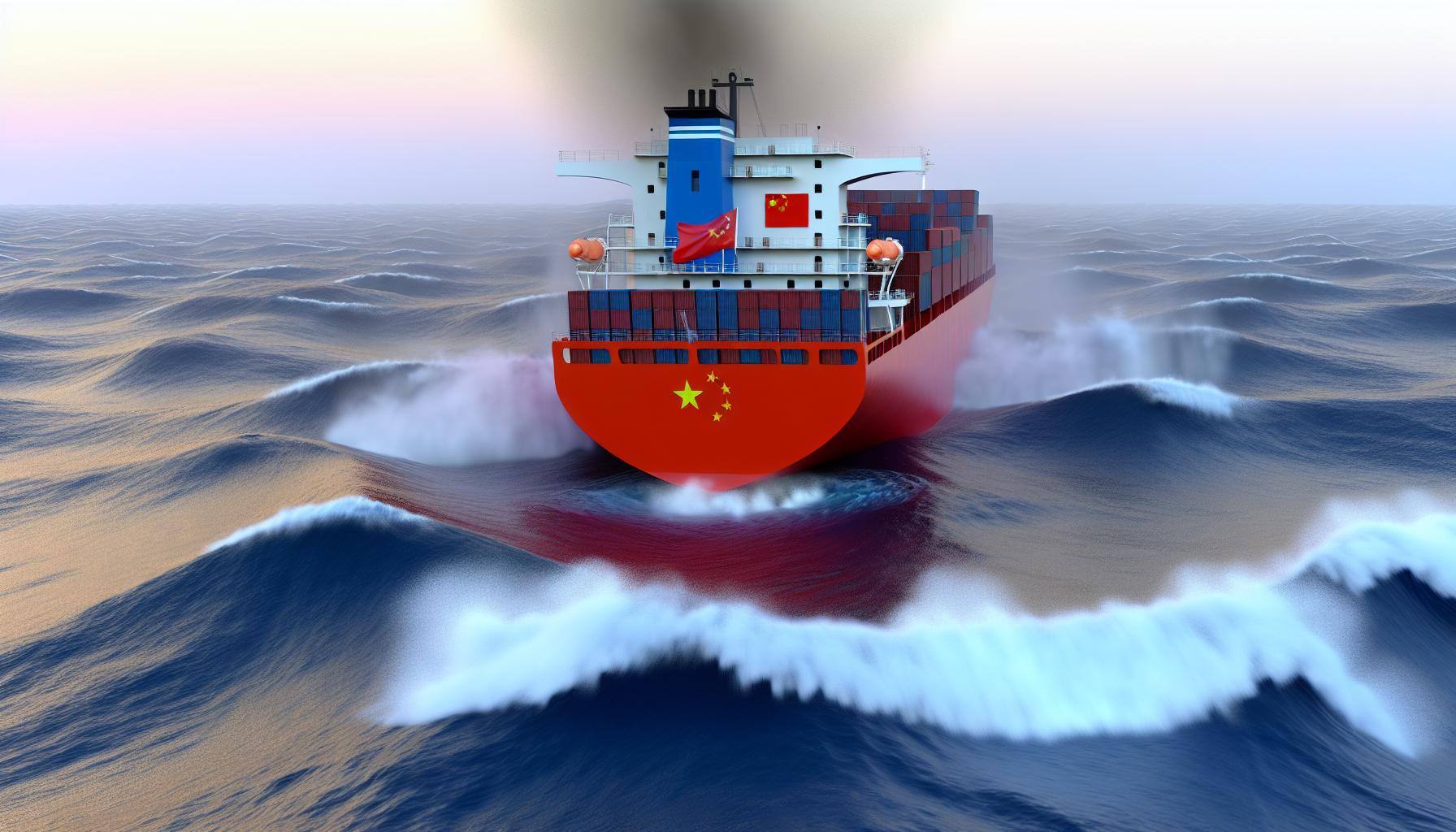The ongoing crisis in the Red Sea, initiated by Houthi rebel threats against Israel's Western allies post the October 7, 2023 attack, has escalated into a significant threat affecting over 65 nations.
The Houthis' indiscriminate attacks on commercial ships have resulted in substantial economic disruptions. Notably, more than a dozen vessels have been damaged or destroyed, such as the UK-owned cargo ship that sank in March, highlighting the indiscriminate nature of these attacks and the severe risk to innocent seafarers.
China's Stake in the Red Sea
As a major economic power, China relies heavily on the Red Sea and the Suez Canal for its exports to Europe, which constitute 60% of its shipments to the West. Despite this, China has maintained a largely passive stance on the crisis. While its economic interests in the Middle East have grown, its foreign policy remains rooted in non-interventionism. However, historical precedents, such as China's mediation between Iran and Saudi Arabia in 2023, suggest a potential for deviation from this stance when necessary.
China's Limited Involvement and Diplomatic Efforts
China's engagement has been minimal. The most significant statement came from Chinese Foreign Ministry spokesperson Wang Wenbin, who expressed concerns over the conflict and linked it to the broader regional instability stemming from Gaza. His proposed solution was passive, emphasizing the need for parties to avoid escalation and to jointly safeguard the shipping routes, without detailing active measures.
In practice, China has taken some protective steps for its own shipping interests. The Chinese navy has been escorting Chinese cargo ships since January, and Chinese officials have exerted pressure on Iran to help curb the Houthi attacks, underlining that continued aggression could strain Sino-Iranian economic relations. However, it is important to note that China's influence over Iran, and by extension over the Houthis, is not absolute.
Strategic Calculations and International Dynamics
China's reluctance to take a more proactive role has led to speculation about its strategic calculations. One notable instance is China's abstention from the UNSC Resolution 2772, which demanded an immediate cessation of Houthi attacks. Despite the potential economic benefits of supporting such a resolution, China chose to abstain, suggesting a preference for maintaining a reactive stance unless Chinese ships are directly targeted. This is facilitated by signals indicating Chinese crew on board, a measure seemingly respected by the Houthis.
Furthermore, China's refusal to join the US-led coalition to protect the Red Sea is telling. Despite calls for joint efforts to safeguard the maritime route, China has opted to rely on its naval assets in Djibouti and its anti-piracy task force. This reluctance is partly due to a desire to avoid bolstering US regional hegemony, which could weaken China's strategic position.
Economic and Diplomatic Implications
China's inaction frustrates many affected countries that see Beijing's potential to mediate a resolution, given its economic leverage and diplomatic ties. Despite some diplomatic overtures to Tehran stressing the economic repercussions of continued attacks, these efforts have yet to yield significant results. China's balancing act—trying to protect its interests without overcommitting—reflects the complexities of its role as an emerging global power amid a volatile geopolitical landscape.
Conclusion
The Red Sea crisis underscores the broader geopolitical and economic challenges faced by global powers like China. As the conflict continues to disrupt international trade and maritime security, China's strategic decisions will be crucial. Whether China prioritizes immediate economic interests or takes a more active role in seeking a long-term resolution remains to be seen, especially as tensions between Palestine and Israel continue to influence regional stability.





